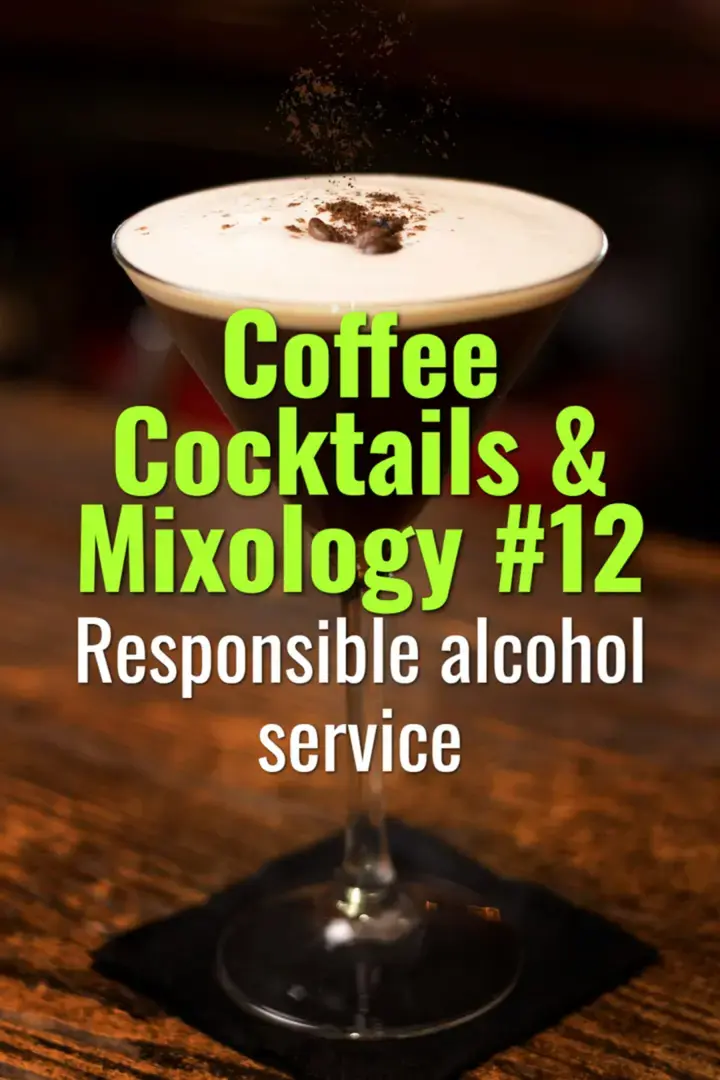Responsible alcohol service
How to practice responsible alcohol service in the context of coffee cocktails, balancing guest enjoyment, legal compliance, and safety.
- Coffee Basics Nerds
- 2 min read
Article 12 of 12 in Coffee Cocktails & Mixology/

Why It Matters
- Coffee cocktails combine stimulants (caffeine) with depressants (alcohol).
- This dual effect can mask intoxication, increasing risks of overconsumption.
- Responsible service protects both guests and establishments.
Key Principles
- Know the Law: Follow local licensing laws, serving hours, and ID requirements.
- Measure Accurately: Always use jiggers or calibrated tools to control pours.
- Standard Units Awareness: Understand alcohol units per cocktail and communicate responsibly.
- Monitor Guests: Look for signs of intoxication—slurred speech, impaired coordination, aggressive behavior.
- Cut-Off Policies: Be prepared to refuse service politely but firmly.
Coffee-Specific Considerations
- Masking Effect: Caffeine may keep guests alert even while intoxicated.
- Late-Night Risks: Espresso martinis and similar drinks are popular late at night, when alcohol impact is higher.
- Size & Strength: Some coffee cocktails can be deceptively strong (e.g., coladas, Irish coffees).
Best Practices for Staff
- Train staff on responsible service programs (e.g., TIPS, ServSafe, RSA depending on country).
- Encourage offering low-ABV or zero-proof alternatives.
- Provide water and food alongside cocktails.
- Track guest consumption, especially in high-volume settings.
Communicating with Guests
- Market coffee cocktails honestly—highlighting flavor, not just strength.
- Educate about caffeine + alcohol interaction.
- Avoid glamorizing overconsumption in branding or menus.
Summary
Responsible alcohol service in coffee cocktails means precision, vigilance, and guest care. By following laws, measuring carefully, offering alternatives, and monitoring guest well-being, bartenders can ensure coffee cocktails are enjoyed safely and responsibly.